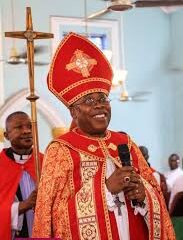Sports
Olympic Football: Poor Preparations Cost Africa In London
If anything is to be re-learnt from the continent’s
chequered performance at the 2012 Olympic Games football tournament, it remains
an uncomfortable, sobering, truth – that talent is no substitute for meticulous
long-term planning.
And Africa certainly has talent, as it has repeatedly proven
over the years.
“African football, certainly, does not lack the talent to
win, but its administrators must learn that they must plan,” Fifa president
Sepp Blatter has said while discussing the disappointing state of the African
game.
“Other countries and continents take time to plan, and to
strategise for success. African football must do the same.”
From the golden glory of Nigeria and Cameroon in 1996 and
2000, respectively, and then Nigeria’s silver at the Beijing Games four years
ago, to 2012, when no African side
reached the last four of either the men’s or women’s events.
Of the six teams that represented the continent in the men’s
and women’s tournaments, only Senegal, who defeated Uruguay 2-0, and Egypt, in
beating Belarus 3-1, managed to get wins in London.
Gabon and Morocco crashed out of the men’s tournament after
the group stages, as did Cameroon and South Africa in the women’s event.
Of course, the general statistics mask the rather
humiliating performances by the Indomitable Lionesses and Banyana Banyana,
whose Olympic debuts leave them with full plates of food for thought.
Cameroon’s comprehensive losses to Brazil (0-5), Great
Britain (0-3) and New Zealand (1-3) respectively, and South Africa’s losses to
Sweden and Canada, scoring once while conceding seven, expose the huge gap the African women’s game
has to close.
One of the few highlights for the ladies was South Africa’s
surprisingly-respectable 0-0 draw against Japan, the reigning women’s world
champions.
“Our overall performance at this tournament is a clear indication that African football still has a lot of catching up to do,” says Aliou Cisse, the 2002 World Cup defender who now works as Assistant Coach of Senegal’s Olympic team.
“If we want success, then we have to plan for it and work
very hard for it. That takes time and a lot of effort. There are no shortcuts.”
But as Gabon coach Claude Mbourounot bluntly observes,
following his team’s first-round exit, those running African football at the
national association and continental levels need to take a good look in the
mirror.
“African football suffers from a lack of organisation and
structure. We need to be organised,” he said.
“We (those responsible for coaching and managing teams) are
often frustrated by people and institutions that do not understand our
administrative and technical needs.”
And as obvious as the administrative deficiencies in the African
men’s game are, the womens’ game suffers from an even worse lack of financial
attention and proper technical support.
None of the two teams that represented the continent has a
functioning women’s league, as is the case in most African countries.
“In Africa, there are several people that even question the
rationale for supporting women’s football,” says a visibly angry Lydia Nsekera,
president of the Burundi Football Federation and the first woman in the
108-year history of Fifa to sit on the world governing body’s executive
committee.
“It is clear that without regular league competition for our
women throughout the continent, there is no way our national teams will be able
to effectively compete at tournaments like the Olympics.”
Obayiuwana writes for BBC sport
After the disappointing performance of Africa at the 2010
World Cup in South Africa, where only Ghana’s Black Stars made it to the
knock-out stages of the competition, the Olympic failures serve as another
timely reminder to the continent’s administrative chiefs – reminding them that
preparations off the pitch, as well as on it, are the only way the continent
will conquer the mountaintop.
Obayinwana writes for BBC Sport
Osasu Obayiuwana
Sports
Barcelona Open: Nadal’s Comeback Ended By World No 11
Rafael Nadal’s injury comeback was ended by Alex de Minaur as the 12-time champion waved goodbye to the Barcelona Open for possibly the final time. Nadal, 37, returned to court on Tuesday after a three-month absence, making light work of 21-year-old Italian Flavio Cobolli in a straight-set win.
A day later, Nadal lost 7-5 6-1 to world number 11 De Minaur in round two.
Nadal, a 22-time major winner, has indicated he plans to retire in 2024 if he is unable to compete regularly.
The former world number one, now ranked 644th, has only played five matches since January 2023 because of hip and abdominal injuries.
Nadal is hoping to be fit enough to make a return to the French Open, where he won a record 14 men’s singles titles, next month.
Facing a player of De Minaur’s pedigree was always likely to be a considerable step up, and a truer test of his level than his comeback outing against 62nd-ranked Cobolli.
The 25-year-old Australian tried to test Nadal’s movement by using drop shots early in the match, an effective tactic which helped him move 2-0 in front and tee up another break point for 3-0.
But Nadal survived to hold and improved his level, producing a number of explosive cross-court backhand winners as he fought back to lead 4-3.
Another backhand winner, this time down the line, even drew a clap of the strings from De Minaur and teed up another break point for Nadal.
Taking the chance would have left Nadal serving for the set, but De Minaur recovered and won 19 of the next 24 points to win an opener lasting more than an hour.
After so long out, and with playing on consecutive days, Nadal’s endurance was always going to be tested, particularly against an opponent known for his athleticism.
De Minaur played smartly in a one-sided second set and broke Nadal’s serve three times, silencing the Barcelona crowd in the process, to secure an impressive victory.
Nadal left the court bearing his name – for what could be the final time – to a standing ovation and rapturous send-off.
Meanwhile, British men’s number two Jack Draper reached his 10th ATP Tour quarter-finals at the BMW Open in Munich.
Draper, 22, fought back after a rain delay to earn a 4-6 6-1 6-1 win over
German world number 179 Rudolf Molleker at the clay-court event.
Sports
Leverkusen Chief Backs Alonso To Join Madrid
Bayer Leverkusen chief executive Fernando Carro has claimed that Xabi Alonso will coach Real Madrid, while also lending fresh hope to Liverpool.
Alonso’s remarkable success at Leverkusen, who clinched their first-ever Bundesliga crown at the weekend, has positioned him as one of the most sought-after managers in Europe, with Liverpool and Bayern Munich previously leading the chase. Despite the interest, the 42-year-old Spaniard has affirmed his commitment to remain at the helm of the Bundesliga outfit for at least one more season.
However, Leverkusen’s leadership acknowledges the challenge of retaining Alonso over the long term, given his burgeoning reputation and the inevitable interest from top clubs across Europe. Among the potential destinations for Alonso, Real Madrid stands out prominently as Carro expressed his belief that Alonso could eventually return to the Spanish capital, where he enjoyed a distinguished playing career.
Speaking to Tidesports source, Carro also suggested Liverpool still have a chance of striking a deal for Alonso one day, as he stated: “I have no doubt that Xabi Alonso will coach Real Madrid at some point. What I am not clear about is when, but that he will end up at Real Madrid I have no doubt, as it is also possible that he trains Liverpool or Bayern.
There are a lot of clubs interested, that’s how it is, which doesn’t mean that in the future he can’t coach some of the clubs mentioned, especially his former teams as a player. But he feels comfortable here, otherwise he wouldn’t continue. We will maintain our ambition to play in the Champions League next year.”
Despite Real Madrid’s current managerial stability under Carlo Ancelotti, whose contract is due to run until 2026, reports suggest that the club’s hierarchy views Alonso as the ideal candidate to succeed Ancelotti when his tenure concludes. The backing of Real Madrid’s board, including club president Florentino Perez, further solidifies Alonso’s prospects of potentially assuming the managerial reins at the Santiago Bernabeu in 2026. Allegedly aware of the esteem in which the club’s leadership holds him, Alonso has opted to remain at Leverkusen, biding his time for a potential return to Real Madrid.
Alonso is focused on preparing Leverkusen for the second leg of their UEFA Europa League quarter-final against West Ham at London Stadium on April 18, following their 2-0 victory in the first leg at BayArena.
Sports
Barca Blame Referee, Panic For Loss To PSG

Barcelona had a two-goal aggregate lead and were seemingly in control of their UEFA Champions League quarter final second leg match against Paris St- Germain in Spain until it all turned to chaos.
A disaster performance from the referee, panic from Barcelona’s players and an unnecessary expulsion, according to Barca sources, were all blamed on a dramatic Tuesday evening at Estadi Olimpic Lluis Companys as PSG ran out 4-1 winners.
Barcelona centre-back Ronald Araujo’s sending off turned the tide in their Champions League quarter-final as PSG came from 3-2 down in the first leg to win the tie 6-4 on aggregate.
A double from Kylian Mbappe, a long-range strike from Vitinha and an Ousmane Dembele goal against his former club sent Barcelona spiralling out of control – and out of the competition.
As Barcelona turned in a performance riddled with mistakes, referee Istvan Kovacs had a busy evening. The Romanian showed three red cards to the hosts – manager Xavi’s frustrations getting the better of him, before a member of his coaching staff was dismissed for dissent. That only compounded the damage done by Araujo’s red-card inducing challenge on Bradley Barcola early in the first half.
“The referee was really bad. I told him his performance was a disaster. I don’t like to talk about referees, but it had a clear impact in the season and it has to be said,” Xavi told news men.
“We are very upset and angry because the red card was the decisive factor in the match. With 11, we were in a good position, playing well and in command.
“It’s too much to flash a red card in a game like this. There was another game after that… It is a pity that the work of the season was ruined by an unnecessary expulsion.”
Araujo’s early exit allowed PSG to build momentum. The goals flowed; Barcelona collapsed. Joao Cancelo needlessly brought down Dembele in the box, allowing Mbappe to score the first of his two goals from the penalty spot.
“You can’t make mistakes in the Champions League,” former Barcelona striker Thierry Henry said after the game.
“If you make mistakes, you pay the price straight away and that’s why it is so hard to win that competition because you cannot make one mistake.”
Having left Paris with a 3-2 victory, Barcelona got off to the perfect start in their second leg when Raphinha deflected in teenager Lamine Yamal’s cross.
But Barcelona’s lead did not last long and PSG took control in the second half as the cards came from Kovacs.
-

 News5 days ago
News5 days agoMonarch Lauds Fubara Over Road Project
-

 Politics5 days ago
Politics5 days agoFubara’s Victory Thanksgiving: Semenitari Challenges Okocha Over Funding Allegation
-

 Nation5 days ago
Nation5 days agoAnglican Bishop Urges Politicians To Lead With Integrity
-
Business2 days ago
Manufacturers Blame High Product Cost On Diesel
-

 Oil & Energy5 days ago
Oil & Energy5 days agoPETAN Moves To Boost Oil Production
-

 World5 days ago
World5 days agoSouth Korea’s President Promises Changes Amid Poor Showing At Polls
-

 Politics2 days ago
Politics2 days agoNew SIM Support Group Inaugurates State Officials
-

 Rivers2 days ago
Rivers2 days agoFubara Has Demystified Governance-Elder Statesman

